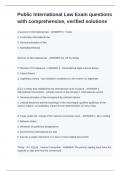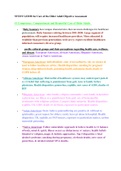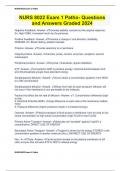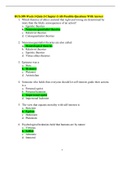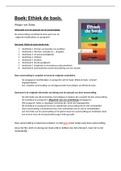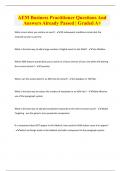Exam (elaborations)
Public International Law Exam questions with comprehensive, verified solutions
- Course
- Institution
4 sources of international law - ANSWER-1. Treaty 2. Customary international law 3. General principles of law 4. Subsidiary/tribunal Sources of international law - ANSWER-Art. 38 ICJ treaty 3 Theories of Compliance - ANSWER-1. Transnational legal process theory 2. Liberal theory 3. ...
[Show more]
